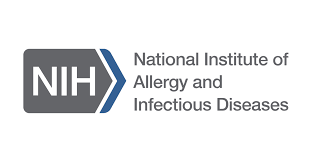
It’s not too late to apply! The University of South Carolina has extended the application deadline for their third annual T35 Big Data Health Science in Infectious Diseases Summer Research Training program to February 29th, 2024! The NIH-funded program is is open to US citizens, US non-citizen nationals, and lawful permanent residents who are pre-doctoral (masters and pre-dissertation graduate students) in the physical and quantitative sciences who have completed at least 1 year in their graduate program. This is an 11-week, full-time intensive course-based training program to work alongside established clinical scientists on one or more Big Data Health-related studies. In addition to formal classroom training (at no cost to the student), each student will receive accommodations and a stipend to be involved in a specific research project, actively participating in a hands-on manner in a research laboratory currently conducting studies related to Big Data Health Science. As you prepare for a career in Big Data Science, you can learn about research that involves Big Data and work alongside a diverse array of well-known established researchers in a full-time, hands-on setting.
The program will provide the following support to Trainees during the training period:
- A stipend up to $2,068 for each of the three months that they participate in the program (up to $6,204 total)
- Support to travel to campus (See Travel Reimbursement Policy linked here)
- Up to $1,000 of travel support per trainee to present their research at national and local conferences
- Support for health insurance (if uninsured), tuition, and subject fees
- Housing will be provided during the training period
- Funding to publish a manuscript
- Travel support to present at a conference
- Up to $200 funding for necessary computing software
- Invitation to present on your experience to NIH program officers at our annual Big Data Health Science Conference (in early February)
- Matched with a mentor
- Participation in a funded Big Data research project
- The opportunity to network with influential people in Big Data Science
The future of health care will be shaped by the role big data plays in improving patient outcomes. Currently, the potential of BDS in healthcare research remains limited due to various structural or methodological challenges in data acquisition, analysis, and interpretation. Central to addressing these challenges is the training of a critical mass of researchers with the adequate knowledge, competencies, and skills needed to unlock important answers from Big Data to better understand, treat, and ultimately prevent infectious diseases and their related comorbidities. The ultimate goal of this program is to cultivate a thriving and talented pipeline of next generation scientists, engaging current students early and providing new and innovative training opportunities to generate interest in the biomedical, social and behavioral, and clinical sciences. Being the inaugural year, there were concerns regarding how to make the program accessible for people from all scientific backgrounds. The BDHSC would like to thank the 2023 cohort for collaborating with the executive committee on ways to fine-tune the program to enhance the experience of future cohorts. The BDHSC is committed to constant quality improvement, and appreciates the opportunity to collaborate with trainees to gain their perspective at every point in the program.
The 2023 Cohort consisted of 8 students from diverse backgrounds in the sciences, including: Katie Bond, a PhD student in Biophysics at the University of Denver, Eric Inman, a Master’s student in Computer Science at California Polytechnic State University, Giovanna (“Gia”) Leone, a PhD student in Motor Development and Physical Education at the University of South Carolina, Giangvuthanh (“Giang”) Nguyen, a PhD student in Applied Mathematics at Old Dominion University, Yasmin Keyghobadi Nia, a PhD student in Applied Mathematics at Old Dominion University, Katheryn (“Kat”) Perea-Schmittle, a PhD student in Biotechnology at New Mexico Institute of Mining and Technology, Angela Tower, a PhD student in Applied Mathematics at the University of Washington, and Aryeona Wilson, a Master’s student in Bioinformatics at the University of North Carolina. Here are some impressions that students from our 2023 cohort had of the program:
With the opportunities the T35 program offers, students can truly immerse themselves in learning about infectious diseases and data science, as well as have the chance to work on applicable research. Particularly for me, having an individually matched mentor was a great experience, as it allowed me to be guided through.
The T35 Program is a great introduction to data science applied to healthcare. The faculty are very caring, and they give you all the tools to learn and succeed.
I thoroughly enjoyed the T-35 traineeship and learned valuable machine learning techniques that I can utilize in my own research. The mentor match program and variety of classes prepared us for advanced Big Data analytical methods that will benefit our future research and help us make strides in the public health field. I would highly recommend this program if you are a motivated learner and are inclined to enhance your public health knowledge and analytical skills.
This is a very informative and helpful program to get a better understanding of Big Data Health Science. The program gives students opportunities to work on real-life problems. Mentorship is a good opportunity to develop my research paths.
The T35 Program has highly educated professors and mentors, super friendly and helpful staff. The program provides all the tools needed to carry out research.
Being able to apply mathematical techniques to such important issues in Public Health really gives the work a new meaning. I learned a lot and this internship massively influenced my career direction.
This program was a very enlightening experience! It exposes you to a side of research that always has the end result of helping those most at risk which I find very refreshing.
A Special Thanks to Our Funder
The BDHSC would like to thank the National Institute for Allergy and Infectious Diseases for making this program possible through their T35 grant award.

